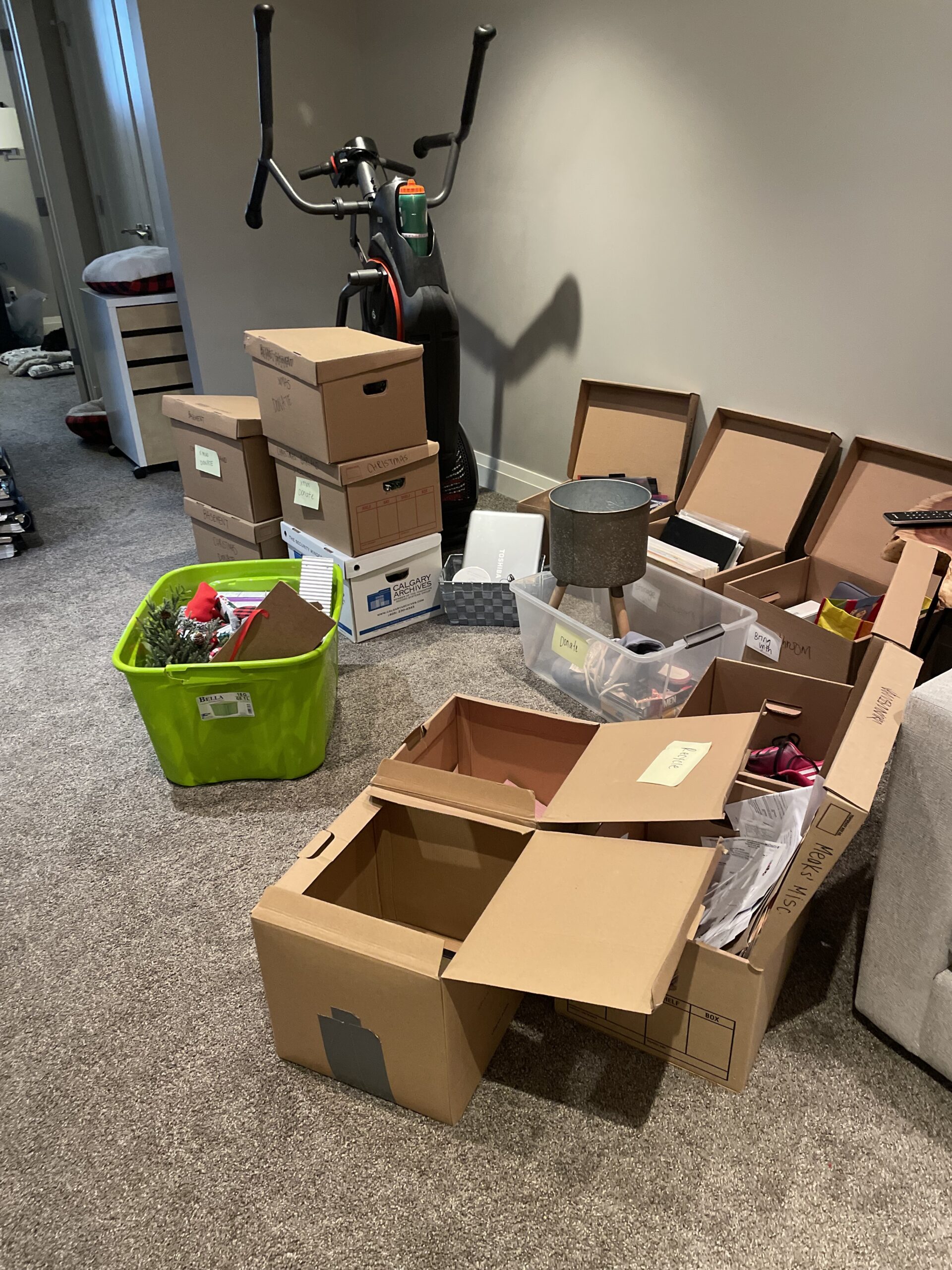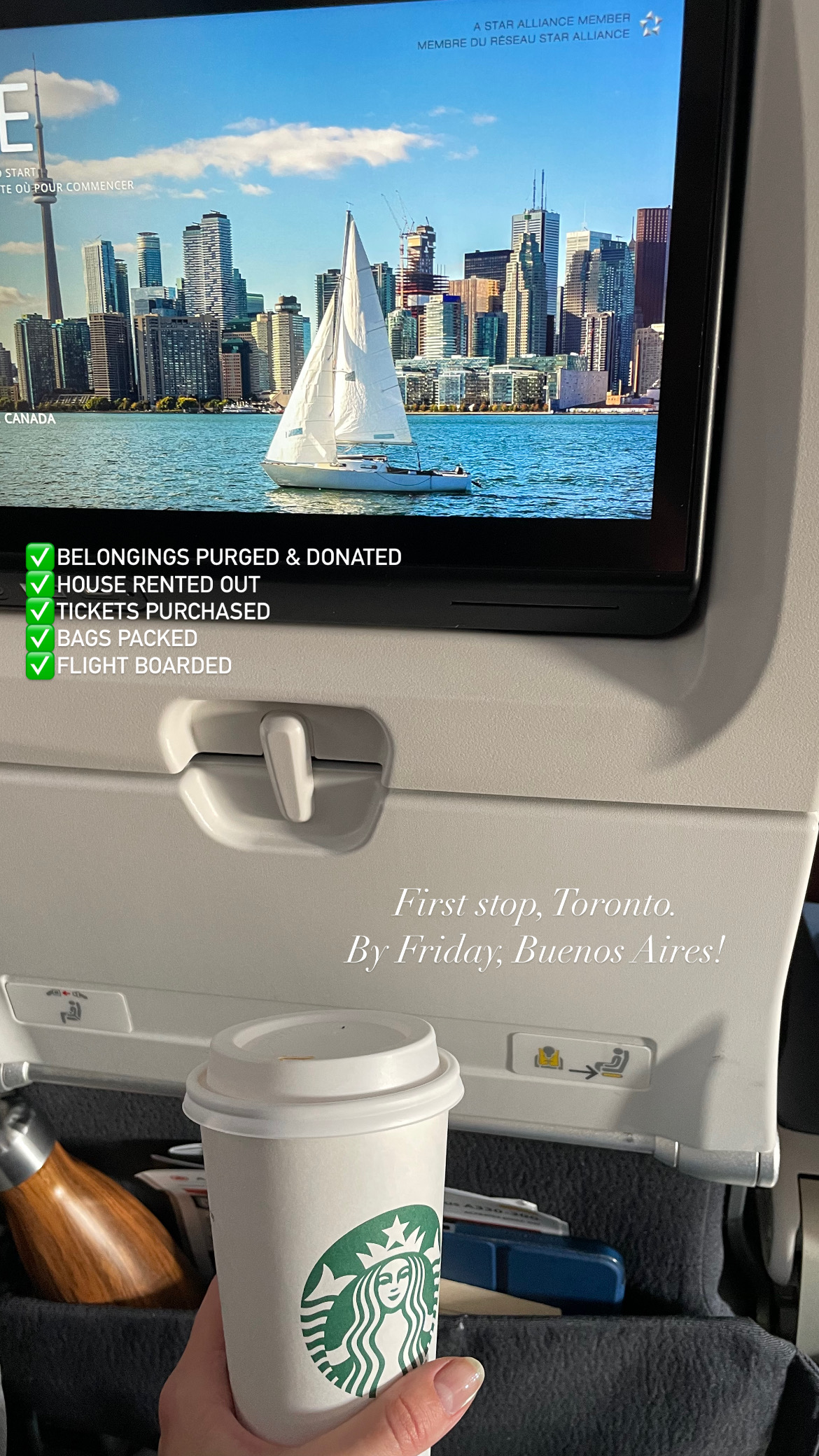It’s a liberating thought. Tantalizing even. You’ve got a house and a mortgage and a car and maybe a kid or a dog and a job. You have a whole life somewhere. But the thought of selling everything, packing a suitcase and moving far away.. maybe it crosses your mind sometimes. To leave all you know behind. To start anew. To experience life on the other side of the world. Do you dare to dream?
Many people romanticize about moving abroad. The possibilities are seductive. And yet, if so many people think about doing this, why don’t more people do it?
The reality is that it’s a lot of work. It’s a lot more work when you’re an adult and you find yourself owning a house, a car, a dog and a job. So when the dream is to move internationally, it’s one heck of a lot harder when you’re a contributing adult than when you’re a galavanting 20-something with no responsibilities other than brushing your hair occasionally.
In September, we moved out of our house. The move was an indefinite one, but as this was our first time moving abroad as “contributing” adults with lists of responsibilities, we took precautions. We started planning at least a year before we took flight. I tried to just ‘pick up and go.’ And then I remembered I had a job I was expected to show up at. And a dog that wasn’t going to care for herself. And a house that wasn’t going to pay its own mortgage. And a whole bunch of stuff that I have somehow accumulated over my time becoming said “contributing” adult.

Anyway. The decision was made – we were leaving. Now we were faced with the task of getting all our ducks in a row. Lots to do, but not insurmountable. So in case you’re interested, and in no particular order, here are the various essential undertakings:
- Pick a Destination. The fun part. Spin a globe, ask for recommendations, or maybe there’s always been somewhere you’ve wanted to live. A lot of this decision will ride on your requirements (do you need a specific visa? Are you bringing an animal? Are you looking to find work there? Do you speak the language? Do you care?). For us, we wanted to explore more of South America. So that narrowed the focus, and eventually we settled on Buenos Aires, Argentina.
- Deal with your Job. This looks different for everyone. I am a teacher, so I could have applied for a teaching position in the area we were moving to. I also applied for a leave of absence from my board of education (never bad to have a back-up plan). The other option would be to quit. Hey, if you’ve got the funds and you don’t care for a back-up plan, go for it. If you can work remotely, you’ll want to find a country that provides a Digital Nomad Visa or something similar. We were looking to move to South or Central America, so our options were limited to those countries that offered this visa.
- Sell, Rent, or otherwise Abandon House. Abandoning seemed like a bad idea, so we put our house on the market. Which was a lot of work with everything. Showings, in particular. If you’ve ever had your house on the market, you know how much work this is. Not only does it involve finding a halfway decent realtor, it also involves keeping your home in tip-top shape for those last-minute callers. I want to say we had our house on the market for 2 months. And at the end of it all, we chose not to sell. So, fun. Now we had to find a rental company that we could trust and that would take us on while we relocated to a different hemisphere. We also had to find renters that sounded reasonable (no, we don’t want 4 single college dudes, thank you very much). We were not altogether impressed with the rental company we used either, so I won’t recommend them here.
- What about the Dog? If there are any fluffy or otherwise non-human members of your family, they will require a (sometimes ridiculously) high level of pre-planning before they can board that plane with you. You will have to meet the export requirements of your own country as well as meet the import requirements of the country you are importing them to. Make sure you do your research. I’ve heard horror stories about animals being refused entry at the point of landing because their paperwork didn’t meet the exact requirements. And don’t even get me started on St. Lucia. They maintain on their government website that “animals failing to meet Import Requirements or entering without a permit will be refused entry or be humanely euthanized.” !!????!!!!!!?!!? I can’t with that. Long story short – be very careful when you are relocating your furry friend. Don’t leave anything up to chance!
- Your Stuff. If you’ve lived in a place for more than a couple years… admit it… you have stuff. And if you’re anything like me, you have a lot more stuff than you realized. Which brings me to the next point.
- The Great Purge. This was hard. It was hard to get started, but once I started I couldn’t stop. I began by watching Minimalism by The Minimalists. I think I watched it on Netflix. My favourite take-away is the Combustion Theory. You’re going through your things. You pick something up, you hold it in your hand. You imagine it spontaneously combusts. Now. How do you feel? If you feel nothing, get rid of it. Badda-bing. Sayonara. I also found a Women in Need shelter to donate to. They’re fantastic, they are so grateful, and they take everything. Plus it feels great to help people who need help.
- Sell or Storage or Ship? For things like snowboards, or bike racks, or furniture, or other things that are expensive or inconvenient to replace. Unless you’re feeling exceptionally generous, you’re going to want to sell this stuff, put it in storage, or ship it to wherever you’re going. If you need a storage locker, you will probably want to get on this early. I found lots of storage facilities were at capacity and not taking any new customers. We needed a small one in the event we were returning to Canada. Like I said, we were taking “precautions.” We are contributing adults!
- Cell Phones and setting up Alternate Verification Methods. If you’re moving to a different country, it makes a lot of sense to get a SIM card for that country once you’ve relocated. And you might not need to keep your old cell phone plan. Especially if you’re in Canada and you’re paying upwards of $100 a month for basic calls/texts and to use the world wide web occasionally. I cancelled my plan and bought an Argentine sim card when I arrived and for $10 a month I had essentially the same services as I did back in Canada. Decide what you want to do, but you’ll have to do something. I’ve heard people have used E-Sims as well, and I think you can keep both numbers if you do this, but I haven’t tried. The one thing you’ll want to remember is to check all your logins (bank login, work login, email and even app logins like Uber, for example) because most of them want to text you every time you login (especially if your location is not recognized) to verify your identity. Once you’ve relocated and cancelled your number, this becomes problematic. I was able to set up other options with all my various profiles to either send me an email, or answer a verification question, or use backup codes to verify my identity without the need to call/send a text. My bank has a cool app you can download where every time you need to login, you use the app to generate a real-time code without the need for alternate verification. Clever. Anyway. Take the time to do this. You will be happy you did.
- Entry Requirements. Yeah, I know. But if you’re moving somewhere and you have four suitcases and a dog and you’re entering on a tourist visa, you better believe they are going to ask you questions. For Argentina, I needed proof that I was going to leave Argentina within three months of my arrival. Which meant buying a ticket out of the country within that time frame so I could demonstrate proof for immigration. I got around this by buying a one-way ticket to Brazil for 70 days or so after my arrival in Buenos Aires. Other people have bought an onward ticket right before their flight and then cancelled it as soon as they’re through immigration. I’m not telling you what to do. I’m telling you to cover your bases.
- Vaccinations. This goes for both you and your furry friend.
- Medical Insurance? We opted No. We regretted it later. A tale for another time, my friend.
- Annoying Things. House insurance because it changes when you’re not living there, even if you have renters. Heat/Electricity. Waste collection. Cable. Mail. All the little things you realize aren’t little when you have to take care of them all.
- What are you doing with your Car? Are you putting it in storage? Are you leaving it with a friend? Are you selling it? If you’re not getting rid of it, there’s that fun insurance thing to deal with again.
- The Essentials you Actually Need to Bring With. There aren’t many of these things, thankfully, but you’ll want enough contact lenses, for example, for when you arrive until you figure out where and how to get more. Consider your essentials. Take enough to get started. This is especially important in countries like Argentina where there’s no Amazon and the international mail system is essentially broken.
- Money. Oh, money. Do you have a debit card? A credit card? Do you have backups to both? Do you have a limit on your account in case of theft? How are you going to be using your money? Will you need cash? For Argentina we had to send ourselves money through Western Union in order to get the Blue Rate instead of the Official Rate. Don’t get me started. But do a little research so you’re prepared. Expat groups on Facebook are actually pretty helpful.
- Expiries. Check them all. Passports, drivers’ licenses, visa and debit cards. These are a whole lot more difficult to replace when you aren’t in your home country. How about your own expiry? Have you expired yet from reading this list?
And there you have it. See? Lots to do but not insurmountable. And very, very rewarding. Once you’re on that plane, with your documents and your dog, nothing left behind you and all the possibilities ahead of you, flying to the other side of the world in a big metal tube. That’s what makes it all worth it, my friend.



Leave a Reply